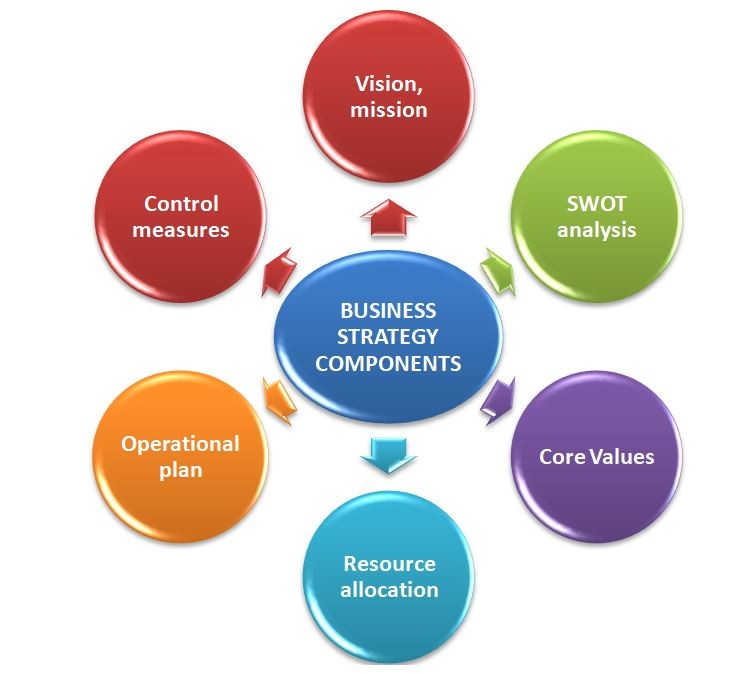
As the global marketplace continues to expand, small business have more opportunities than ever to enter international markets and reach new customers. Competing globally, however, presents unique challenges for smaller companies with limited resources. By implementing smart strategies and leveraging their unique strengths, small businesses can successfully establish themselves in international markets. Here are key strategies for small businesses to compete globally and make a lasting impact.

1. Understand the Target Market Thoroughly
Entering a new market starts with a deep understanding of local consumer behavior, cultural differences, and regulatory requirements. Conducting market research helps small businesses identify customer needs, gauge demand, and determine how to position products effectively.
Key Steps:
- Conduct Market Research: Study market trends, customer demographics, and buying habits in the target country.
- Understand Cultural Nuances: Tailor your marketing and communication to align with local cultural values.
- Analyze Competitors: Identify local competitors and analyze their strengths and weaknesses to spot potential opportunities.
2. Utilize Digital Marketing to Build Brand Awareness
Digital marketing is a cost-effective way for small businesses to reach international audiences without the need for physical stores or large-scale advertising. Platforms like Google Ads, Facebook, and Instagram allow small businesses to target specific regions and demographics, helping them build brand awareness globally.
Digital Marketing Strategies:
- Social Media Marketing: Leverage platforms popular in the target market to build a following and engage with customers.
- Search Engine Optimization (SEO): Optimize your website for local search terms and languages to rank higher on search engines.
- Content Marketing: Create valuable content tailored to local interests, positioning your business as an authority in the industry.
3. Leverage E-commerce for Global Reach
E-commerce platforms provide a low-cost entry point into the global market, enabling small businesses to sell directly to international customers. Platforms like Amazon, eBay, Shopify, and Alibaba simplify logistics, payment processing, and shipping, making it easier to reach global customers.
E-commerce Tips for Small Businesses:
- Choose the Right Platform: Select e-commerce platforms that are popular in the target market and compatible with your business model.
- Offer International Shipping: Provide shipping options for international customers and include transparent pricing.
- Localization: Tailor product descriptions, currency, and language to the target audience for a seamless shopping experience.
4. Form Strategic Partnerships
Forming partnerships with local businesses, distributors, or influencers in the target market can help small businesses gain credibility and expand their reach. Strategic partnerships offer valuable local insights and support, enabling businesses to navigate new markets with confidence.
Types of Partnerships:
- Local Distributors: Partner with local distributors to handle logistics and inventory, helping you scale in new regions.
- Influencers and Brand Ambassadors: Collaborate with influencers to promote your products and build brand trust.
- Joint Ventures: Consider forming a joint venture with a local company to share resources, reduce risks, and build a strong local presence.
5. Focus on Niche Markets
Small businesses can effectively compete globally by focusing on niche markets where they can offer specialized products or services that cater to a specific audience. Niche markets often have less competition and more loyal customers, allowing small businesses to establish a strong foothold and create lasting customer relationships.
Steps to Identify a Niche:
- Research Market Gaps: Look for gaps in the market that larger competitors may overlook.
- Identify Unique Selling Points (USPs): Highlight what sets your product or service apart and why it appeals to a particular audience.
- Build a Loyal Community: Engage with niche customers through personalized communication, support, and community-building efforts.
6. Embrace Cost-Effective Global Logistics
Logistics can be challenging for small businesses entering global markets. Partnering with third-party logistics (3PL) providers and using international shipping platforms can streamline the logistics process. Small businesses should consider affordable shipping options and reliable partners to ensure products reach customers on time.
Logistics Tips:
- Use 3PL Providers: Partner with 3PL providers for warehousing, order fulfillment, and shipping to reduce costs and improve efficiency.
- Optimize Packaging: Choose lightweight, durable packaging to minimize shipping costs.
- Track Shipments: Use tracking software to monitor shipments in real-time, ensuring reliable delivery and customer satisfaction.
7. Focus on Quality and Customer Service
High-quality products and exceptional customer service are crucial for building a strong reputation in global markets. In competitive environments, small businesses that focus on product excellence and attentive customer support often outperform larger competitors that may overlook these aspects.
Quality and Service Strategies:
- Product Quality: Ensure products meet international quality standards to build trust with global customers.
- Responsive Customer Support: Offer multilingual support if possible, and respond promptly to inquiries from international customers.
- After-Sales Service: Provide a seamless return or exchange policy to boost customer confidence and foster loyalty.
8. Manage Risks with Effective Planning
Global expansion brings unique risks, from currency fluctuations to regulatory changes. Small businesses must anticipate these risks and implement strategies to protect themselves. Risk management strategies, such as currency hedging and insurance, help small businesses mitigate potential losses.
Risk Management Tips:
- Currency Hedging: Protect against exchange rate fluctuations by locking in favorable rates or using hedging instruments.
- Understand Local Regulations: Work with legal advisors to ensure compliance with laws related to taxes, customs, and product standards.
- Insurance: Consider export insurance or liability insurance to reduce risks associated with international operations.
9. Embrace Sustainability and Ethical Practices
Consumers globally are increasingly valuing sustainability and ethical practices, especially in international brands. By adopting environmentally-friendly and socially responsible practices, small businesses can appeal to a broader audience and differentiate themselves from competitors.
Sustainable Practices:
- Eco-Friendly Packaging: Use biodegradable or recyclable materials in packaging.
- Ethical Sourcing: Ensure raw materials are sourced responsibly and in compliance with fair labor practices.
- Transparency: Clearly communicate sustainability efforts to build trust with customers.
10. Monitor Performance and Adapt
Entering global markets requires flexibility and continuous improvement. Small businesses should track their performance in each market, gather customer feedback, and remain adaptable to changes in demand, competition, or regulations. Monitoring key metrics like sales, customer satisfaction, and ROI helps businesses make informed adjustments.
Key Performance Indicators (KPIs) to Track:
- Sales Growth: Measure revenue growth in each target market.
- Customer Feedback: Regularly review feedback to understand customer needs and expectations.
- ROI on Marketing Efforts: Analyze the return on investment for marketing and advertising in each region to optimize spending.
Conclusion
Competing in the global marketplace offers tremendous growth potential for small businesses. By understanding their target market, leveraging digital tools, focusing on niche markets, and maintaining high standards of quality and service, small businesses can establish themselves internationally. While global expansion requires careful planning and adaptability, the right strategies can enable small businesses to successfully navigate global competition and create lasting impact.
By embracing an innovative and customer-centric approach, small businesses can thrive in new markets, building a global presence that attracts loyal customers and drives long-term success.





